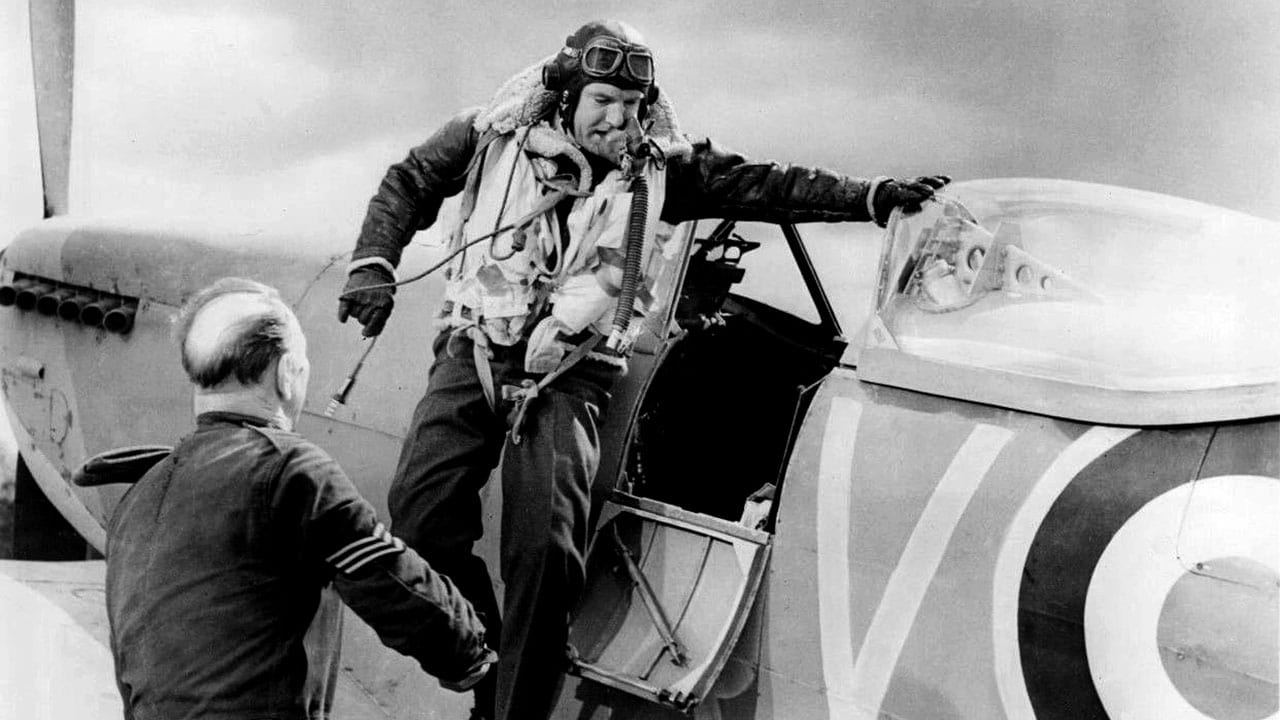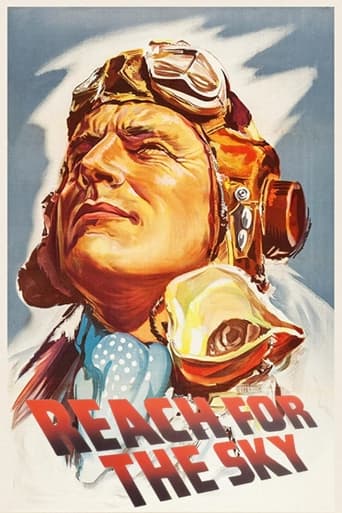

Dreadfully Boring
... View MoreGreat movie! If you want to be entertained and have a few good laughs, see this movie. The music is also very good,
... View MoreIt is neither dumb nor smart enough to be fun, and spends way too much time with its boring human characters.
... View MoreWhile it doesn't offer any answers, it both thrills and makes you think.
... View MoreThis film tells the story of pilot Douglas Bader from the time that he first joined the RAF to train as a pilot in 1928 till the end of the war in 1945; it is an amazing story of his determination to continue flying despite losing both legs in an accident that should have killed him in 1931. In a surprisingly short time he is up and about on a peg-leg and a pair of crutches; that isn't good enough for him though and it isn't that much longer before he is having a pair of artificial legs fitted. The doctors tell him he will need a stick but he refuses and with some practice is able to walk again. He may not fly though despite proving that he is able to; rather than fly a desk in the RAF he takes an office job and marries a girl he met while convalescing. He finds his work tedious so is keen to rejoin the RAF once the war starts; with a shortage of good pilots they need him. He soon proves that he is a good tactician as well as an excellent pilot and is given his own squadron and then a wing. Once the Battle of Britain has been one he finds himself taking the fight to the enemy over occupied France; it is during one such sortie that he is shot down and taken prisoner. He isn't content to wait for the war to end and keeps attempting to escape until he is eventually sent to Colditz.Before watching this I knew some of Douglas Bader's story but this film really does bring home just what a remarkable man he was. A lot of this was down to Kenneth More's magnificent performance; he made Bader's struggle to walk again difficult to watch as it was so believable and each fall looked so painful that he seemed doomed to fail despite knowing from the start that he will not only walk but also fly! The rest of the cast but in solid performances and the scenes of air combat are fantastic; this is largely down to the use of archive footage of actual aerial combat. If you are interesting in the history of flying, the Second World War or just want to see a truly inspirational film about a real person overcoming the odds then this is a must see!
... View More'The channels are blocked? Then we'll ruddy well UNblock 'em!' This is the point in the film where I feel like cheering, as it perfectly sums up Bader's 'can do, will do' approach. It's the true story of Douglas Bader, a young flying enthusiast who went on to be a fearless WW2 Spitfire pilot, losing both legs in the process. His struggle to walk again, his courting of a pretty girl and his later formation of 'the big wing' in the fight against the Nazi invasion are laid out here with gusto, verve and a little humour. Kenneth More is excellent as Bader, using his natural, relaxed acting technique to give the part a free-wheeling energy. The very pretty Muriel Pavlow plays his wife who grows increasingly concerned at his derring-do, and there is a solid cast of British regulars of the time. The music is stirring, the direction brisk and the story itself is straight out of a Boys' Own comic. What more could you ask for? A perfect Sunday afternoon film.
... View MoreAlong with 633 Squadron and The Dambusters, this film is probably the best war film ever made.It's not surprising that all these films are British made, without the Hollywood "hero" spin.The film tells of the indominable spirit of Douglas Bader, and his rise back to health and active service after losing both legs in an air crash.Semi-autobiographical, it runs pretty close to the true story of a man who inspired many, both during the Second World War and after.If you've not seen it, don't be put off by the black & white, or the lack of CGI. Simply go and buy or hire it and sit back and enjoy.
... View MoreWhile this may seem 'corny' to some people, this movie instills hope, courage and determination for anyone old enough to understand the concept. To overcome such obstacles, to persue their beliefs/ convictions are lessons to all of us, not just the disabled. Kenneth More is outstanding in the leading role, although I did think that his dog was rather cute. (husband nods disaprovingly).
... View More